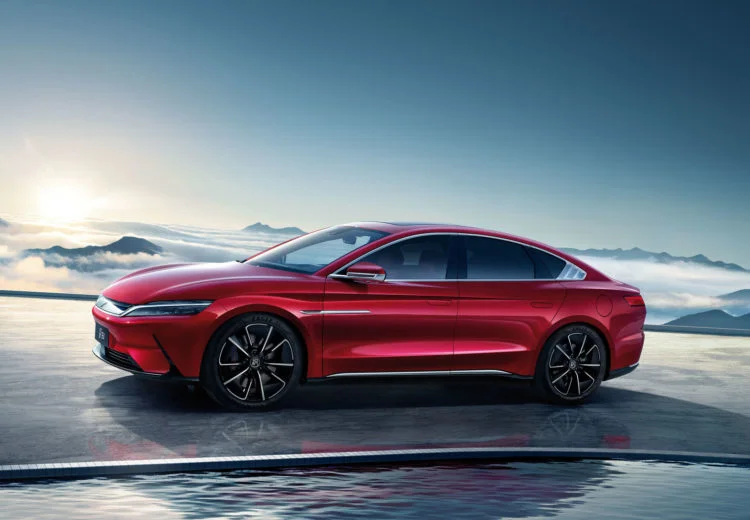In recent years, Brazil has emerged as a hotbed for electric vehicle (EV) innovation, driven by a growing commitment to sustainability and technological advancement. In 2023, the Brazilian government announced an ambitious plan to have 10% of all vehicles on the road be electric by 2030. This initiative is not just a step towards cleaner energy but a seismic shift in the nation’s transportation landscape. This article will explore how electric cars are revolutionizing transportation in Brazil in 2024, delving into the latest trends, infrastructure developments, and the impact on the Brazilian economy and environment.
The Growth of Electric Vehicles in Brazil
Government Initiatives and Policies
Brazil’s government has played a crucial role in accelerating the adoption of electric vehicles. In 2023, the National Electric Mobility Strategy was introduced, aiming to reduce emissions and dependency on fossil fuels. This policy includes tax incentives for EV manufacturers and buyers, making electric cars more affordable for the average Brazilian. Moreover, the government has committed to expanding the charging infrastructure across the country, particularly in urban areas like São Paulo and Rio de Janeiro.
Market Dynamics and Global Influence
The Brazilian EV market is experiencing rapid growth, influenced by international trends and local demand for sustainable solutions. Companies like BYD, Volkswagen, and Nissan have increased their presence in Brazil, offering a range of affordable and mid-range electric vehicles. According to Reuters Mobility, EV sales in Brazil surged by 45% in 2023, a clear indicator of the burgeoning enthusiasm for electric cars.
- BYD: Known for its cost-effective models, BYD has captured a significant share of the market with its compact EVs.
- Volkswagen: The German automaker has introduced its ID series to Brazil, focusing on performance and sustainability.
- Nissan: With the popular Nissan Leaf, the brand continues to appeal to eco-conscious drivers seeking reliability and efficiency.
Infrastructure Development: Charging Stations and Battery Technology
Expansion of Charging Infrastructure
One of the main challenges for EV adoption in Brazil has been the lack of charging stations. However, this is rapidly changing. As of 2024, Brazil boasts over 5,000 public charging stations, a 60% increase from 2022, according to Electrek. The government, in collaboration with private companies, is investing heavily in expanding this network, making it easier for Brazilians to own and operate electric vehicles.
Advances in Battery Technology
Battery technology is at the heart of the electric vehicle revolution. Recent advancements have led to longer-lasting, more efficient batteries, significantly improving the overall EV experience. Companies like Tesla and Rivian are spearheading innovations in lithium-ion and solid-state batteries, offering increased range and faster charging times. These technological strides are crucial for Brazil, where long distances between cities have traditionally posed a challenge for electric vehicles.
Practical Tips for Prospective EV Owners
How to Charge Your EV in Brazil
Charging an electric vehicle in Brazil is becoming increasingly convenient. Here are some tips for prospective EV owners:
- Home Charging: Install a home charging station for overnight convenience.
- Public Charging: Utilize apps like PlugShare to locate nearby charging stations.
- Fast Charging: Take advantage of fast-charging stations along major highways for long-distance travel.
Where to Buy Your Electric Car
If you’re considering purchasing an electric car in Brazil, here’s where you can start:
- Authorized Dealerships: Brands like Hyundai and Ford offer a wide selection of EVs through their extensive dealership networks.
- Online Platforms: Websites like Mercado Livre have a growing selection of new and used electric cars.
- EV Expos and Shows: Attend events like the São Paulo Motor Show to explore the latest models and innovations.
What to Compare When Buying an EV
When choosing an electric vehicle, consider the following factors:
- Range: Ensure the vehicle offers sufficient range for your daily needs.
- Charging Time: Compare charging times across models to find one that suits your lifestyle.
- Cost: Factor in government incentives and potential savings on fuel and maintenance.
Conclusion: The Future of Electric Vehicles in Brazil
Electric vehicles are not just transforming Brazil’s transportation system but are also paving the way for a more sustainable future. As infrastructure continues to improve and technology advances, the accessibility and appeal of electric cars will grow, potentially making Brazil a leader in the global EV market. For those interested in sustainable living, now is the perfect time to consider making the switch to electric.
Are you ready to join the electric revolution? Share your thoughts on how electric vehicles could change your daily commute and contribute to a greener planet. As we look forward, it’s clear that the road ahead is electric, promising a cleaner, more efficient future for Brazil and beyond.

